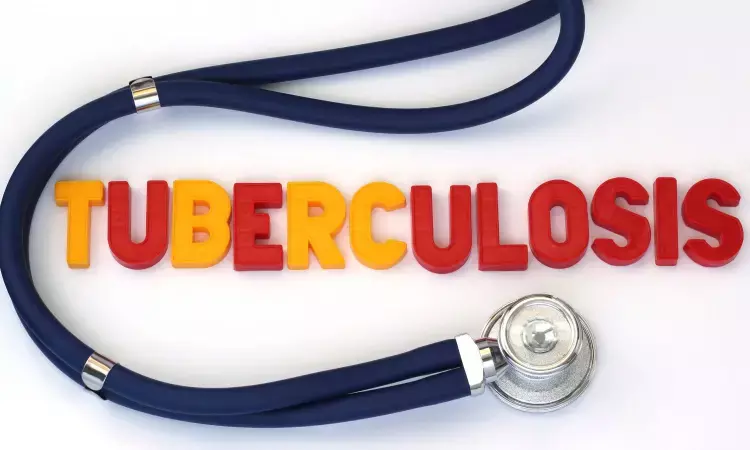- Home
- Medical news & Guidelines
- Anesthesiology
- Cardiology and CTVS
- Critical Care
- Dentistry
- Dermatology
- Diabetes and Endocrinology
- ENT
- Gastroenterology
- Medicine
- Nephrology
- Neurology
- Obstretics-Gynaecology
- Oncology
- Ophthalmology
- Orthopaedics
- Pediatrics-Neonatology
- Psychiatry
- Pulmonology
- Radiology
- Surgery
- Urology
- Laboratory Medicine
- Diet
- Nursing
- Paramedical
- Physiotherapy
- Health news
- Fact Check
- Bone Health Fact Check
- Brain Health Fact Check
- Cancer Related Fact Check
- Child Care Fact Check
- Dental and oral health fact check
- Diabetes and metabolic health fact check
- Diet and Nutrition Fact Check
- Eye and ENT Care Fact Check
- Fitness fact check
- Gut health fact check
- Heart health fact check
- Kidney health fact check
- Medical education fact check
- Men's health fact check
- Respiratory fact check
- Skin and hair care fact check
- Vaccine and Immunization fact check
- Women's health fact check
- AYUSH
- State News
- Andaman and Nicobar Islands
- Andhra Pradesh
- Arunachal Pradesh
- Assam
- Bihar
- Chandigarh
- Chattisgarh
- Dadra and Nagar Haveli
- Daman and Diu
- Delhi
- Goa
- Gujarat
- Haryana
- Himachal Pradesh
- Jammu & Kashmir
- Jharkhand
- Karnataka
- Kerala
- Ladakh
- Lakshadweep
- Madhya Pradesh
- Maharashtra
- Manipur
- Meghalaya
- Mizoram
- Nagaland
- Odisha
- Puducherry
- Punjab
- Rajasthan
- Sikkim
- Tamil Nadu
- Telangana
- Tripura
- Uttar Pradesh
- Uttrakhand
- West Bengal
- Medical Education
- Industry
Vitamin D supplementation helpful tool for prevention and treatment of tuberculosis

Denmark: Vitamin D may help the immune system combat tuberculosis (TB), is the conclusion drawn from a recent study published in Frontiers in Immunology.
"For the first time, we have shown that vitamin D improves the ability of the immune system to fight the tuberculosis bacterium, Mycobacterium tuberculosis," Martin Kongsbak-Wismann, Associate Professor, LEO Foundation Skin Immunology Research Center, University of Copenhagen, stated.
Two billion people globally are estimated to suffer from tuberculosis today. Each year, more than 1.5 million people die from it -- mainly in countries like Mozambique, Namibia, and South Africa.
The finding was drawn from a female patient born with a mutation that makes her body incapable of responding to vitamin D. The mutation is observed in very few people, and only around 200 occurrences of the mutation have been reported globally.
The case described is of TB infection in a 16-year-old girl diagnosed with hereditary vitamin D-resistant rickets (HVDRR) due to a non-functional VDR. Her macrophages showed impaired 1,25(OH)2D3-induced cathelicidin expression and killing of M. tuberculosis. However, this report has some inherent limitations, and including more patients would strengthen the conclusion. However, the patient described here is the only patient with HVDRR in Denmark. Thus, this case is a rare experiment of nature that points to the importance of vitamin D in the pathophysiology of combating M. tuberculosis.
Currently, tuberculosis is treated with antibiotics, but in the past, many patients with tuberculosis were admitted to sanatoriums and made to lie out in the sun. This led to increasing in their vitamin D levels. Therefore, it has been suggested that vitamin D can help fight tuberculosis, but till now, there has been no proof of it.
The study can generate attention to the fact that vitamin D treatment is a valuable tool for tuberculosis prevention and treatment. However, tuberculosis can still develop in people who take vitamin D supplements.
"You need to look at it this way: If you are exposed to infection, your immune system will try to fight the Mtb. And vitamin D will strengthen parts of the immune system. But suppose you have inhaled many Mtb particles or other parts of your immune system do not function properly. In that case, you may still develop tuberculosis, even though your vitamin D level is normal. So it is not a 'wonder drug', but it is bound to help," Martin Kongsbak-Wismann concludes.
The study showed that the female patient produced very few cathelicidins, a natural toxin found in the immune cells of the lungs needed to fight tuberculosis.
In most patients affected by tuberculosis, tuberculosis bacteria attack the immune cells of the lungs. The immune cells fight the bacteria by eating them. But the tuberculosis bacterium has developed various evasive mechanisms that reduce the immune cells' ability to digest and thus kill the Mtb.
"You could say that the tuberculosis bacterium has developed a way to lull the immune cells to sleep. This enables the disease the hide inside the immune cells, making it invisible to other parts of the immune system," Martin Kongsbak-Wismann explains.
This is where vitamin D enters the picture. Because vitamin D can counteract the soporific effect of the tuberculosis bacteria by making the immune cells produce more of the cathelicidin toxin.
"Cathelicidin is like a microscopic needle that can pierce the tuberculosis bacteria. And when it does, it weakens the bacteria's soporific effect on the immune cells. This restores the immune cells' ability to kill tuberculosis bacteria," says Martin Kongsbak.
Reference:
Crone, C. G., Lindenstrøm, T., Arildsen, N. S., Lindeløv, E. S., Aagaard, L., Gravesen, E., Mortensen, R., Andersen, A. B., Olgaard, K., Hjaltelin, J. X., Brunak, S., Bonefeld, C. M., & Geisler, C. (2022). Reduced vitamin D-induced cathelicidin production and killing of Mycobacterium tuberculosis in macrophages from a patient with a non-functional vitamin D receptor: A case report. Frontiers in Immunology, 13. https://doi.org/10.3389/fimmu.2022.1038960
Dr Kamal Kant Kohli-MBBS, DTCD- a chest specialist with more than 30 years of practice and a flair for writing clinical articles, Dr Kamal Kant Kohli joined Medical Dialogues as a Chief Editor of Medical News. Besides writing articles, as an editor, he proofreads and verifies all the medical content published on Medical Dialogues including those coming from journals, studies,medical conferences,guidelines etc. Email: drkohli@medicaldialogues.in. Contact no. 011-43720751


